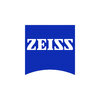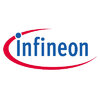2 Intel Emulation Engineer Jobs

Emulation Engineer
Intel
posted 11d ago
Job Role Insights
Flexible timing
Key skills for the job
Job Description
About The Role :
Qualifications
Inside this Business Group The Client Computing Group (CCG) is responsible for driving business strategy and product development for Intel's PC products and platforms, spanning form factors such as notebooks, desktops, 2 in 1s, all in ones. Working with our partners across the industry, we intend to deliver purposeful computing experiences that unlock people's potential - allowing each person use our products to focus, create and connect in ways that matter most to them. As the largest business unit at Intel, CCG is investing more heavily in the PC, ramping its capabilities even more aggressively, and designing the PC experience even more deliberately, including delivering a predictable cadence of leadership products. As a result, we are able to fuel innovation across Intel, providing an important source of IP and scale, as well as help the company deliver on its purpose of enriching the lives of every person on earth.
Employment Type: Full Time, Permanent
Read full job descriptionPrepare for Emulation Engineer roles with real interview advice
What Emulation Engineer at Intel are saying
Emulation Engineer salary at Intel
reported by
14
employees

₹12
L/yr - ₹46.9
L/yr
149%
more
than the average Emulation Engineer Salary in India
View more details
What Intel employees are saying about work life
based on 1k employees
Flexible timing
Monday to Friday
No travel
Day Shift
Similar Jobs for you
Intel Bangalore / Bengaluru Office Locations
Bengaluru Office
136, HAL Old Airport Rd, Kodihalli, Bengaluru, Karnataka 560017, India
Bengaluru
View on map
Bengaluru Office
Outer Ring Rd, Adarsh Palm Retreat, Bellandur, Bengaluru, Karnataka 560103, India
Bengaluru
View on map
Share an Interview





























